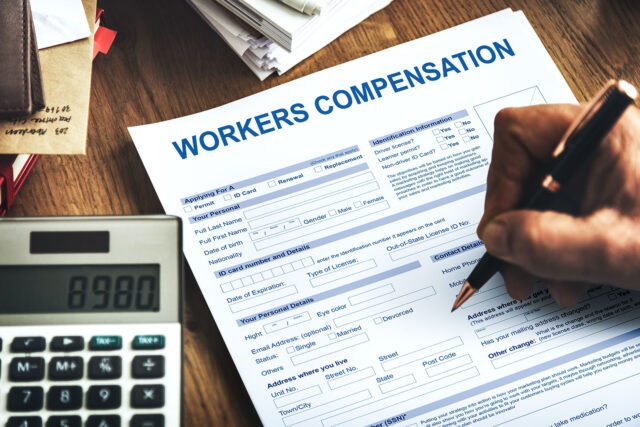
Small businesses face many risks that can threaten their existence, from property damage to legal liabilities. While preventive measures can help mitigate some risks, small businesses must also have appropriate insurance coverage to protect themselves in unexpected events.
Small business owners may find it difficult to identify the coverage they require due to the wide range of available commercial insurance options.
In this article, let’s highlight the six essential types of commercial insurance that small businesses should consider to safeguard their operations and assets. By understanding these insurance types and their benefits, small business owners can make informed decisions about their insurance coverage and protect their businesses from potential financial losses.
1. General Liability Insurance

Through this coverage, businesses are safeguarded against financial losses resulting from claims of physical harm or damage to property caused by their products, services, or operations. It also covers legal fees, settlements, and judgments that arise from such claims.
Small businesses may face significant financial strain or even bankruptcy due to lawsuits filed against them without general liability insurance. Even if a lawsuit is baseless, the legal fees alone can burden small businesses substantially.
General liability insurance is necessary for businesses that interact with the public, such as retailers, restaurants, and service providers. It provides peace of mind and financial security, allowing small business owners to focus on growing their operations instead of worrying about potential legal threats.
2. Commercial Auto Insurance

Commercial auto insurance is an essential type of coverage for small businesses that rely on company-owned vehicles. This insurance protects businesses from financial loss from accidents involving their vehicles, whether caused by the driver or other drivers on the road.
An accident’s associated expenses, such as bodily injury, property damage, and damages to the business’s vehicle, are covered by commercial auto insurance. Medical bills, lost wages, and legal fees that may arise from the accident are also included in the coverage.
Small businesses that use personal vehicles for business may also require this type of insurance. However, personal auto insurance policies typically do not cover accidents while using a vehicle for business purposes. Without commercial auto insurance, small businesses may be exposed to significant financial losses from vehicle accidents.
For example, in 2022, the New Jersey State Police recorded 655 fatal crashes that resulted in 698 fatalities. This number represents an increase from the 570 accidents and 602 fatalities recorded in 2016.
It highlights the importance of having proper insurance coverage in states like New Jersey, especially for businesses that use vehicles as part of their operations. Commercial auto insurance in New Jersey can help protect your business from financial loss in case of accidents involving your vehicles, including damage to the vehicle, bodily injury, and property damage.
3. Property Insurance

Another crucial type of commercial insurance for small businesses is property insurance. This coverage protects businesses from financial losses resulting from damage or loss of their property, such as buildings, equipment, and inventory. In addition, property insurance provides coverage for events such as fire, theft, vandalism, and natural disasters.
Small businesses that operate in areas prone to certain risks, such as floods or earthquakes, may need additional coverage beyond standard property insurance. Therefore, it is important to carefully review the policy to ensure adequate coverage for the specific risks business may face.
Property insurance is crucial for small businesses that operate from a physical location, such as a store or an office. Without this coverage, the business may struggle to recover from the financial impact of property damage or loss.
4. Workers’ Compensation Insurance

Benefits are provided to employees who sustain injuries or fall ill as a result of work-related incidents through this coverage. Medical expenses, lost wages, and other associated costs arising from work-related injuries or illnesses are covered by workers’ compensation insurance.
In most states, workers’ compensation insurance is mandatory for businesses with employees. Failing to provide this coverage can result in significant penalties and legal consequences. Therefore, it is crucial for small businesses to understand the workers’ compensation insurance requirements in their state and to obtain appropriate coverage.
Small businesses linked to industries that pose high risks, such as construction or manufacturing, require to have workers’ compensation insurance.
The majority of small businesses in the US are aware of the significance of this insurance. That’s why IBIS World expects the market of worker’s compensation insurance in the US to increase by 0.9% in 2024. Therefore, a business that employs workers should consider this coverage to protect its employees and business from potential financial losses.
5. Professional Liability Insurance

Also known as Errors and Omissions (E&O), Insurance is a type of coverage that protects small businesses from claims of negligence, errors, or omissions in the provision of professional services. This coverage is vital for businesses that provide advice or professional services, such as consultants, accountants, and attorneys.
Professional liability insurance covers legal fees, settlements, and judgments arising from professional negligence claims. It also covers damages resulting from errors or omissions in the professional services provided by the business.
Without professional liability insurance, small businesses that provide professional services may face significant financial losses resulting from claims of negligence or errors.
6. Cyber Liability Insurance

Cyber liability insurance is a type of coverage that protects small businesses from financial losses resulting from cyberattacks or data breaches. Zippia reports that a cyberattack happens every 39 seconds worldwide. This stat states the importance of cyber security.
Also, this coverage is becoming increasingly important as businesses become more reliant on technology and cyber threats become more prevalent.
Cyber liability insurance covers a range of data breach costs, such as legal fees, notification costs, and credit monitoring for affected individuals. It can also cover losses resulting from business interruption, data restoration, and reputational damage.
Small businesses that collect and store sensitive customer data, such as credit card information or personal identification, should consider Cyber liability insurance. A single data breach can have significant financial consequences, including lost revenue and damage to the business’s reputation.
Commercial Insurance Provides Peace of Mind
Small businesses face many risks that can result in significant financial losses. However, the right commercial insurance coverage can help protect businesses from these risks and ensure long-term success.
Small business owners should carefully assess the risks faced by their business and work with an insurance agent to determine the appropriate coverage for their needs. By obtaining the right commercial insurance coverage, small businesses can minimize financial risks and continue to operate with peace of mind.
Investing in commercial insurance is a proactive step toward protecting and growing small businesses. Small businesses can ensure future success and resilience by taking the time to understand and acquire these essential types of coverage.









